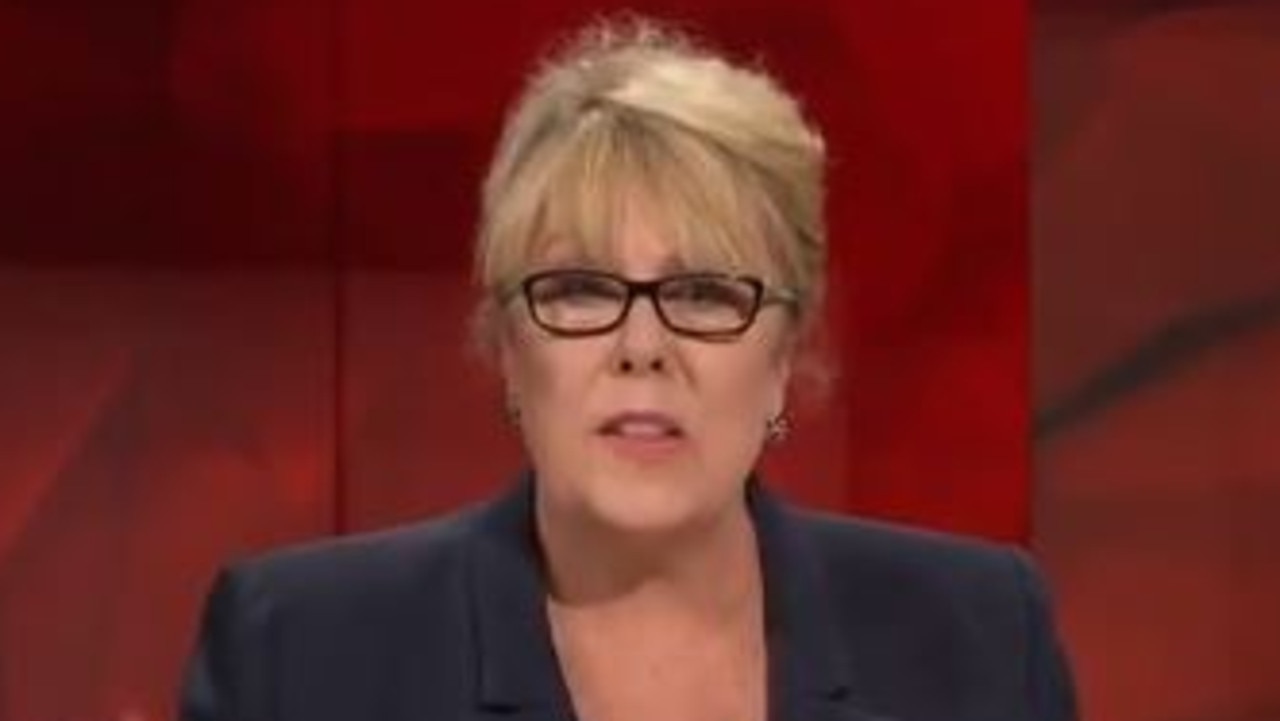ABC board tipped to look at Barry’s role
MEDIA Watch host Paul Barry’s possible breach of the ABC’s conflict of interest policy may be raised at the next board meeting.
MEDIA Watch host Paul Barry’s possible breach of the ABC’s conflict of interest policy by his anti-News Corporation book may be raised at the next ABC board meeting on April 3.
While acting as an independent arbiter of the media in his role as Media Watch host, Barry continues to promote Breaking News: Sex, Lies and the Murdoch Succession, in which he attacks the character of Rupert Murdoch.
Barry has criticised News Corp Australia publications in 11 out of 19 segments since he took the reins at Media Watch on February 3, and, an independent analysis found almost two-thirds of his tweets, from his official account, were about News Corp.
The ABC’s conflict of interest requirements, derived from section 1 of the ABC Editorial Policies on Independence, Integrity and Responsibility, state that external activities of individuals undertaking work for the ABC must not undermine the independence and integrity of the ABC’s editorial content. It also contains a standard that states editorial decisions should not be improperly influenced by political, sectional, commercial or personal interests.
“A conflict of interest is when any of these outside interests - past, current or proposed - compromise or could be perceived to compromise the performance of work the producer or talent is doing for the ABC, the editorial integrity or the program, or the ABC’s reputation,” it says.
On the evening of April 3, Barry, in his dual roles as ABC’s Media Watch presenter and author of Sex, Lies and The Murdoch Succession, will join a discussion panel on the topic, “The Murdoch Press and its Influence on Australian, British and American Politics” at the Harold Park Hotel in Glebe, Sydney.
Two nights later, he will once again join a talk on News Corp, questioning whether “Rupert Murdoch, the powerful international media baron” has “too much power”. The official topic under discussion at the Union Hotel in North Sydney, “Rupert’s Right? Exercising Freedom of Speech or Unmitigated Power?”
While he is not being paid for these speeches, Barry is on the books of a speaking agency and charges up to $5000.
Some ABC board members were yesterday aware of issues about Barry’s possible breach of the conflict of interest requirements under the ABC’s impartiality policy. They were not able to speak on the record.
The Australian understands it will be surprising if the issue is not raised at the next ABC board meeting on April 3.
Julianne Schultz, whose term on the ABC board expired this week, said issues around Barry’s role as Media Watch host had not been discussed at past board meetings.
“The issue that you’re discussing in relation to Paul Barry has emerged in recent weeks so it hasn’t been something that has come to the board’s attention,” Professor Schultz said.
“They have arisen in the past couple of weeks, so it’s occurred between meetings. As my term expired this week, it’s not appropriate for me to provide a comment on it.”
Asked about Barry’s perceived conflict of interest, a spokesman for Communications Minister Malcolm Turnbull said “internal programming and editorial decisions are the responsibility of the ABC board and executive”.
The response was consistent with a speech Mr Turnbull gave at the ABC showcase in Canberra last week, at which he urged the ABC directors to take greater responsibility for the broadcaster’s coverage.
ABC managing director Mark Scott refused to respond to questions about whether Barry had breached the conflict of interest requirements and what would be done to uphold the ABC’s editorial policy.
Mr Scott’s spokesman, Nick Leys, also refused to answer any direct questions.
“Paul Barry is one of Australia’s most respected journalists, whose work has seen him employed at every major media company including News Corp,” Mr Leys said. “He has the ABC’s full support as host of Media Watch.”
The Australian’s editor-in-chief, Chris Mitchell, said Barry’s barely disguised bias against News Corp was influencing his coverage of the media industry.
“Mark Scott does not act like the editor-in-chief he is meant to be,” Mitchell said.
“I’d call on Mark Scott and the ABC board to do what Minister Turnbull has urged them to do and take control. Mr Barry clearly has a conflict of interest.”
Barry’s executive producer, Tim Latham, said he had full confidence in the Media Watch host.
“I don’t see how writing a book on one of the most successful media players of the last 100 years means Paul Barry has a conflict of interest in his role as Media Watch host,” he said.
“Most journalists aspire to write books. Paul Barry has written eight.
“He is free to talk about his book, as is any other working journalist in Australia, even those who write books while employed by News Corporation.”



